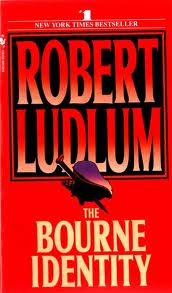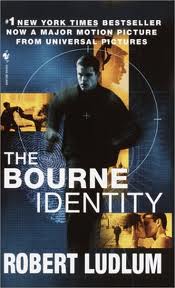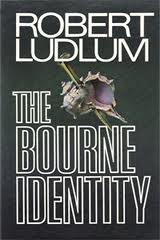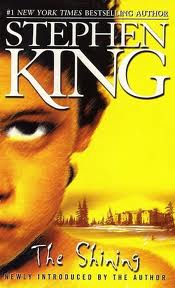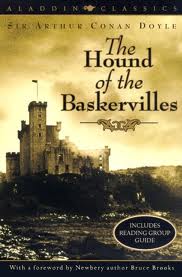Present word count of WIP: 60,234 (Yes, I’ve been dead in the water when it comes to writing…somewhat like Ludlum’s protagonist in the beginning.)
Between the Olympics, gearing up for a book launch and being held in suspense over the final cover of my next novel, it was all I could do to get my reading in, but I did! I actually finished Robert Ludlum’s classic spy thriller, “The Bourne Identity” last Thursday…at about 11:27 pm. Too late to blog about it.
But it gave me time to watch the two movies based on the story. You see, I had thought I’d read this before, but I didn’t remember half of the plot in the book, mainly due to the more recent film version with Matt Damon. The film with Damon was so terrific that it effectively supplanted the plot of the novel in my mind.
Confused, I did a little investigating and came to discover there was a film version put out for television back in the 80’s starring Richard Chamberlain and Jaclyn Smith. While it was much truer to the book, I didn’t enjoy it nearly as much…and it wasn’t just because of the acting (Jaclyn Smith made me cringe).
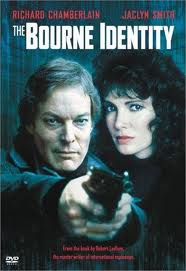 Is that a reflection on Ludlum’s novel? I think so, yes. While his plot is more complex and the writing is tightly-paced (I’ve never seen so many sentence fragments), I began to grow tired of the hero’s struggles to regain his memory. The book was very tied in to current headlines and, having lived through the 80’s, I remember the terrorist/assassin named “Carlos” and how the newspapers bandied about his name every time there was some high-profile attack.
Is that a reflection on Ludlum’s novel? I think so, yes. While his plot is more complex and the writing is tightly-paced (I’ve never seen so many sentence fragments), I began to grow tired of the hero’s struggles to regain his memory. The book was very tied in to current headlines and, having lived through the 80’s, I remember the terrorist/assassin named “Carlos” and how the newspapers bandied about his name every time there was some high-profile attack.
(Spoiler Alert): While the book makes Jason Bourne struggle to come to terms with the possibility that he is this “Carlos,” it eventually clarifies that he isn’t, that he was a good guy working for the U.S. all along, not killing but faking kills in order to draw out the competitive Carlos. While Ludlum writes short sentences, he writes an awful lot of them and, at a certain point, the material just seemed too dense, the psychological struggling too repetitive.
I found the approach taken by Tony Gilroy in the Matt Damon film to be much more compelling: There was no Carlos, or if so, then Jason Bourne (and others like him) filled that role. Bourne was, indeed, a bad guy who did bad things (even if he was brainwashed to do them) and, once he realizes it, he has to find a way to live with himself and try to change his life.
I’m giving it 3.5 stars.
Favorite quote:
“Nothing makes a man more nationalistic than to think his country’s owned by foreigners. He can adjust in time to losing a war–that only means the enemy was stronger–but to lose his economy means the enemy was smarter.”
Next up: Truman Capote’s In Cold Blood…and from what I’ve read so far, I think this will be a 5-star read!
And stay tuned tomorrow. I believe I’ll be unveiling my cover!
Originally posted 2012-08-16 15:21:49.

